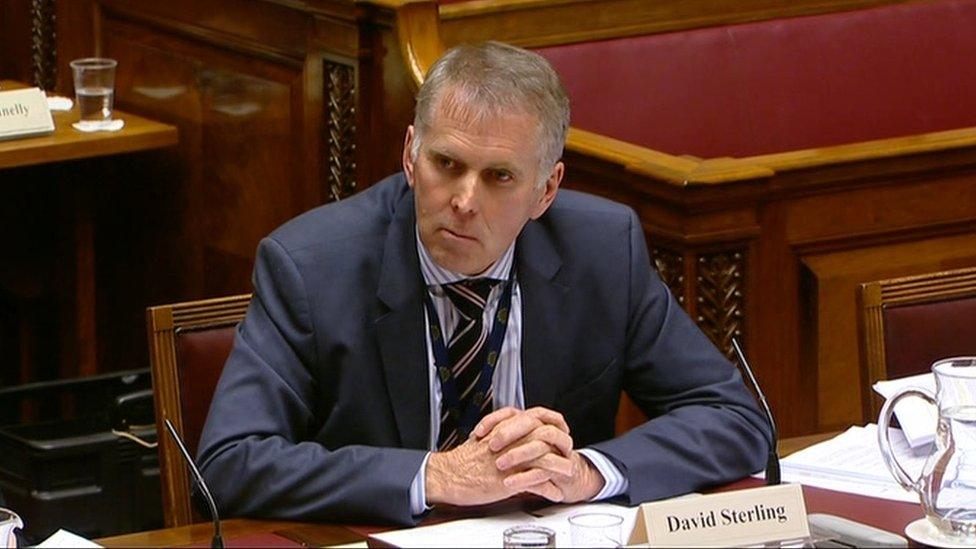Civil servant David Sterling takes over Stormont budget
- Published

David Sterling will use emergency powers to release cash and resources to departments until a new budget is in place
A senior civil servant has taken control of Stormont's finances.
David Sterling has done so because of the failure to pass a budget for the new financial year.
Mr Sterling will use emergency powers to release cash and resources to departments until a new budget is in place.
He said that while the procedures can keep cash flowing to public services it is "not a substitute for a budget agreed by an executive".
He has written to all Stormont departments setting out their spending limits for the next four months.
Mr Sterling now controls a sum of money equivalent to 75% of this year's budget.
Section 59 of the Northern Ireland Act allows him to use that money "for such services and purposes" as he directs.
However, he cannot start funding new policies and has limited flexibility to respond to unforeseen events.
5% cuts
If no budget is in place by the end of July, Mr Sterling will then have the right to spend an amount equivalent to 95% of this year's budget across the whole of the financial year.
That will effectively mean in-year cuts of least 5% across the public service.
However, officials think it is improbable that the emergency situation will continue for that length of time.
When a budget is eventually passed, departments will have access to the full level of funding available.
Mr Sterling has also sought to reassure community and voluntary bodies who feared losing funding.
He said departments are writing to groups to "confirm interim funding designed to maintain the ongoing integrity of the key services they provide until an agreed budget is in place".
Meanwhile, it is understood that the Department of Finance has received legal advice that it can spend so-called "accruing resources" as part of emergency budget procedures.
This is money that comes to departments from sources other than the block grant and includes things like planning fees and EU farm subsidies.
There had been doubt about whether officials had the legal authority to spend that money.
- Published29 March 2017